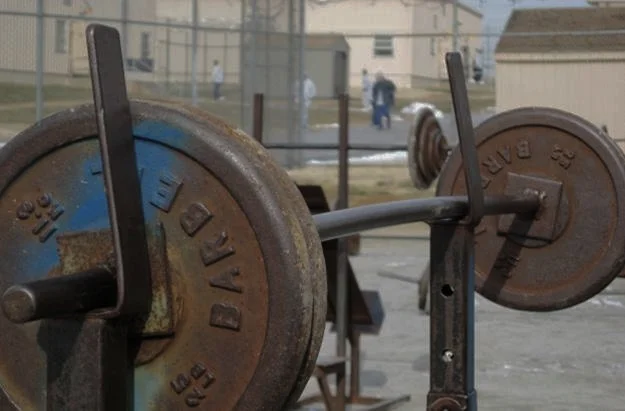FACT: Caffeine is one of the most widely consumed drugs in the world.
When you think a warm delicious cup of caffeinated coffee, an addictive drug comparable to an amphetamine, cocaine, or heroin isn’t the first thing that comes to mind. However, caffeine uses the same biochemical mechanisms as these drugs in order to stimulate your brain and nervous system and fight fatigue. Unlike these other drugs, caffeine remains cheap and easy to find. I bet many of you don’t need to look any further than the bottom of your gym bag to find various free sample packs of caffeinated pre-workout mixes and fat burners.
Although many countries around the world have their own story and source of caffeine, this psychoactive substance has been a part of global history for thousands of years. Anthropologists have traced caffeine back all the way to the Stone Age. These prehistoric people found that if they chewed on the seeds, bark or leaves of certain plants their mood would elevate, energy and focus would increase, and hunger would vanish. How’s that for some broscience!
From being used as a natural pesticide to paralyze and kill many insect species, to being linked to religious ceremonies in order to let worshipers stay up and pray the night away, caffeine is one substance that has truly stood the test of time. In fact, caffeine is so good giving the human body a ‘boost’ that most of the world’s population continues to consume this psychoactive stimulant daily. For many consumers, caffeine is caffeine, but in reality there are two different types: 1. Synthetic caffeine which man-made and found in many sport supplements, foods, drinks, and medications; 2. Natural caffeine that is harvested from over 60 different plants such as coffee, yerba mate, and guarana.
FACT: Caffeine is the drug of choice for most athletes.
While it doesn’t seem as criminal as the usual PED suspects of growth hormone, testosterone and blood doping do, caffeine has become one of the most popular performance enhancing drugs of the 21st century. In response to an increase in caffeine use by athletes, many sport governing bodies have started to pay more attention to caffeine. Although in 2004 the World Anti-Doping Agency (WADA) downgraded caffeine from their prohibited to monitoring list, it still remains classified as a banned substance in many sport organizations around the world.
But can caffeine really enhance athletic performance?
After much debate, sport scientists have finally proven what most of us already know – yes caffeine does enhance performance. It does so by stimulating the central nervous system (brain, spindle cord) – in order to create many of the same effects that amphetamines do, such as increasing heart and respiration rates, decreasing perception of fatigue, and improving athletes sense of performance. In a study by Costill, Ivy and colleagues, caffeine was found to lower an athlete’s perception of effort at any given rate of work. Essentially, caffeine consumption made the athletes in this study perform at higher intensities without realizing that they were putting in more effort to do so.
Now that we’ve established that caffeine is an effective performance enhancing drug, let’s chat about when it’s best to get your buzz on. Although ongoing research is still trying to pinpoint the exact time to ingest caffeine for general athletic performance, studies have concluded that 1 hour prior to cardiovascular endurance training and up to 20 minutes before performing high-intensity exercise will provide the most optimal results.
How much should you consume? The Academy of Nutrition and Dietetics recommends that enhanced athletic performance only requires 2 to 3 mg of caffeine per kilogram of body weight a day. That means that a 200lb athlete would only need to take around 180g to 275mg caffeine each day in order to improve performance. Let’s think about that for a second … hmm … some pre-workout supplements currently on the market contain well over 400g of caffeine per scoop! And no, more is not better!
Research suggests that higher doses of caffeine do not produce any additional benefits. At higher levels, caffeine has the potential to impair fine motor skills and athletic technique, in addition to causing nervousness, restlessness, insomnia and headaches. If you happen to exceed the recommended daily dose, make sure you are close to a bathroom as gastrointestinal distress will follow fast! Caffeine can also increase the risk of dehydration when combined with exercise because of its diuretic properties. And if you drink caffeine to stay awake, be careful as sometimes the reverse effect can occur. Take it from me, caffeine is also very addictive. After discontinuing use headaches, fatigue, and irritability can leave you craving just ‘one more hit’ of caffeine.
Due to its popular use and easy availability, caffeine’s more harmful properties’ are often underestimated or forgotten all together. Although lethal caffeine overdoses are rare, they do happen. Recently the bodybuilding scene has been home to a few cases of caffeine toxicity. Symptoms of caffeine toxicity include tremors, chest pain, vomiting, seizures or convulsions, heart attack, coma, and even death.
Wake up and smell the coffee, caffeine is a powerful performance enhancing drug. It’s time to start treating it as such.
Originally Published: Drug Zone, Muscle Insider Magazine, 26: Dec/Jan 2016




